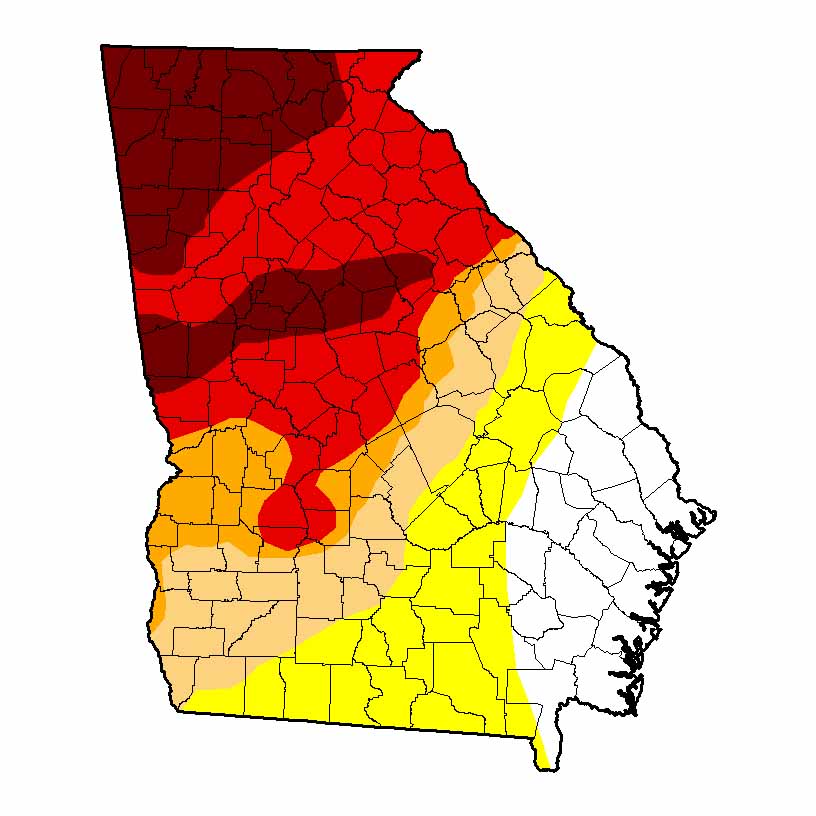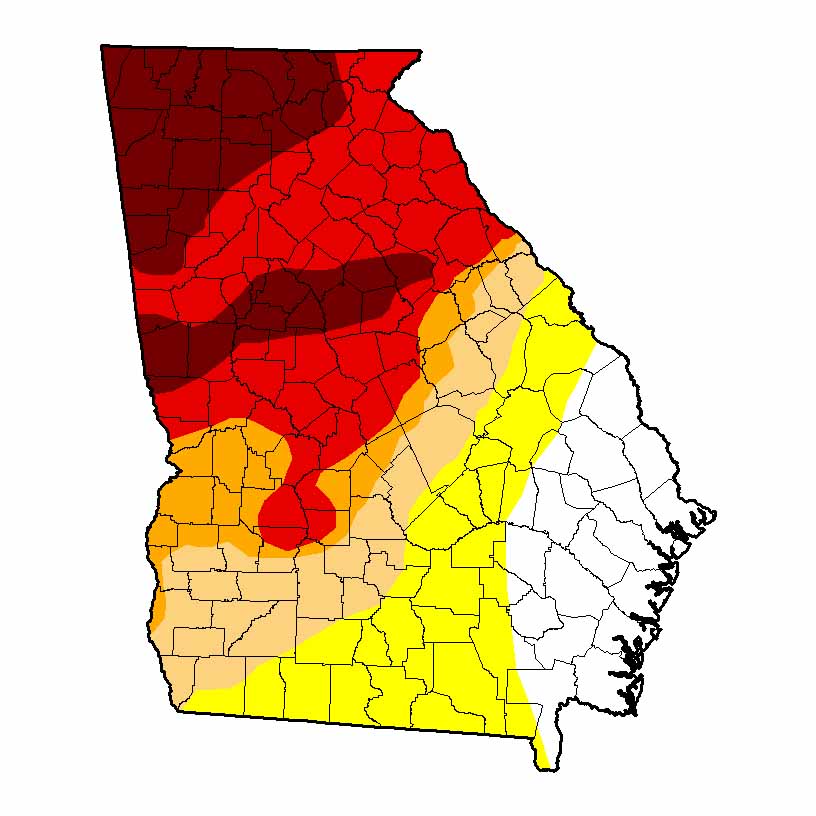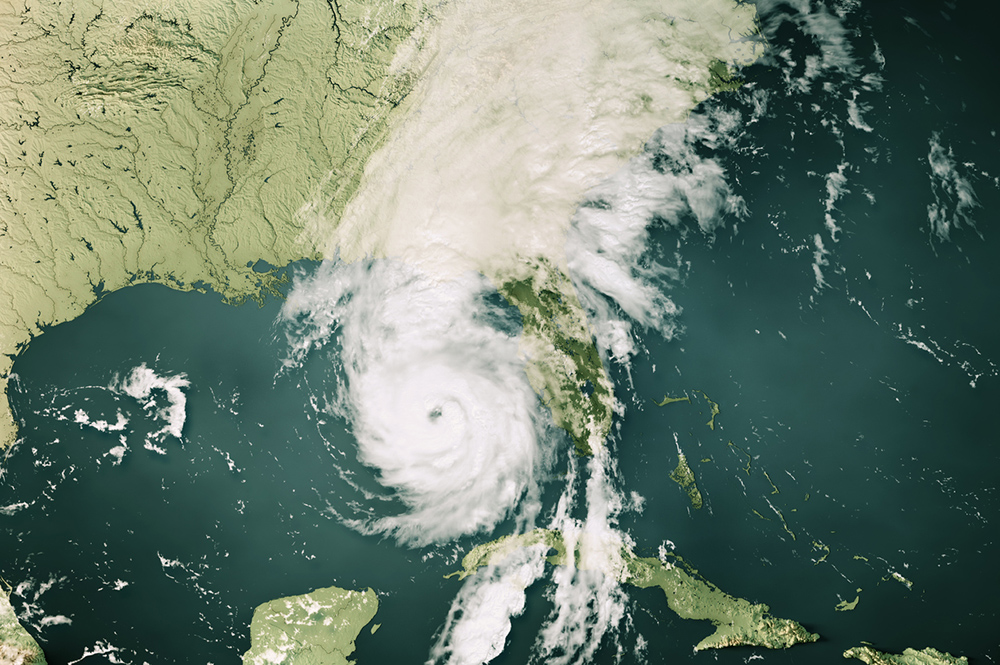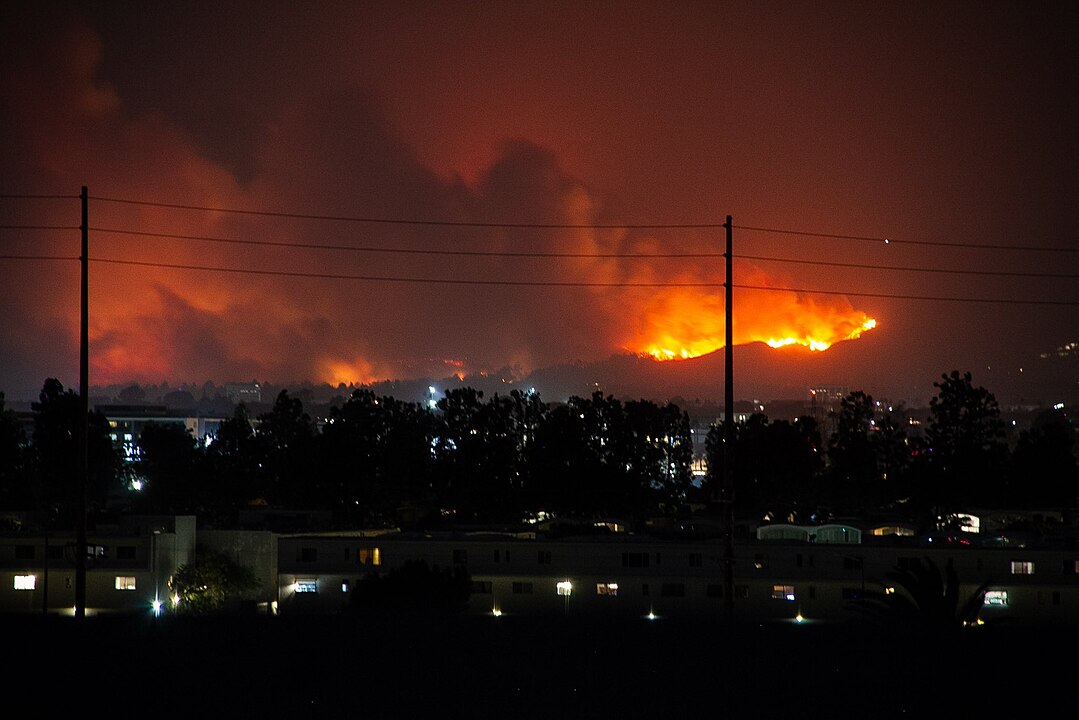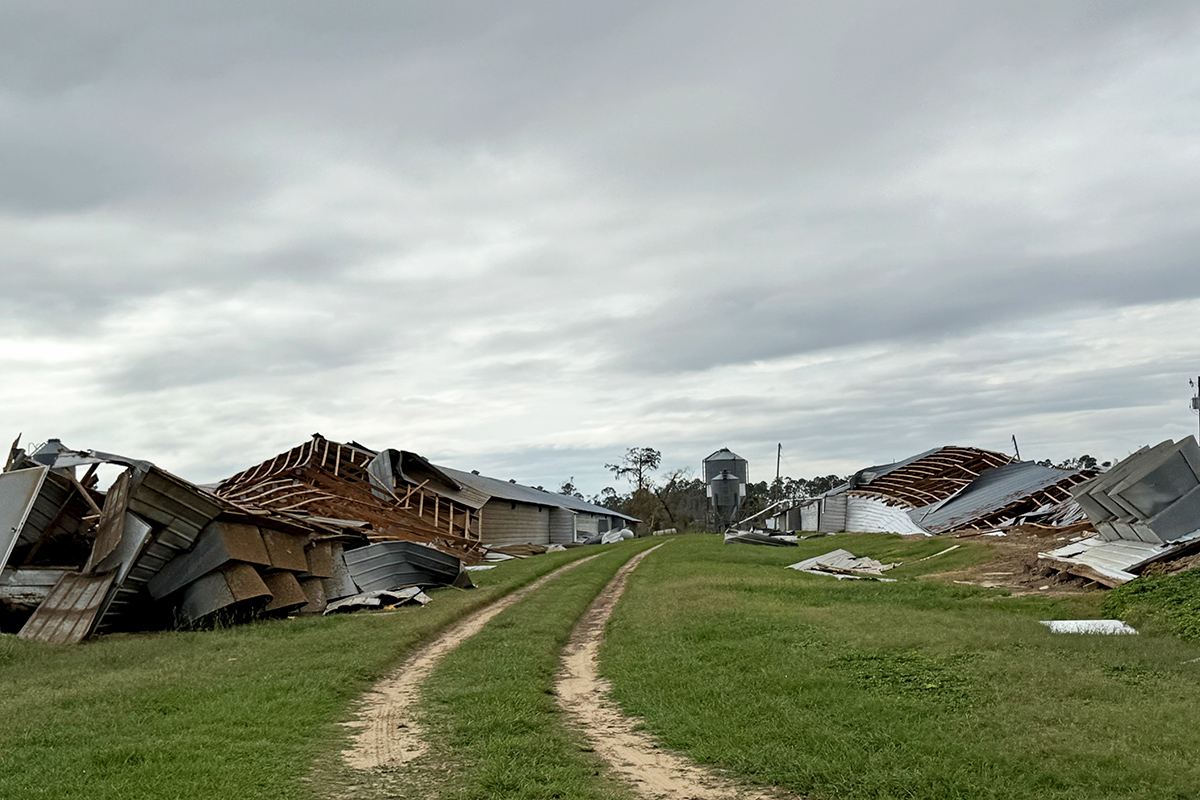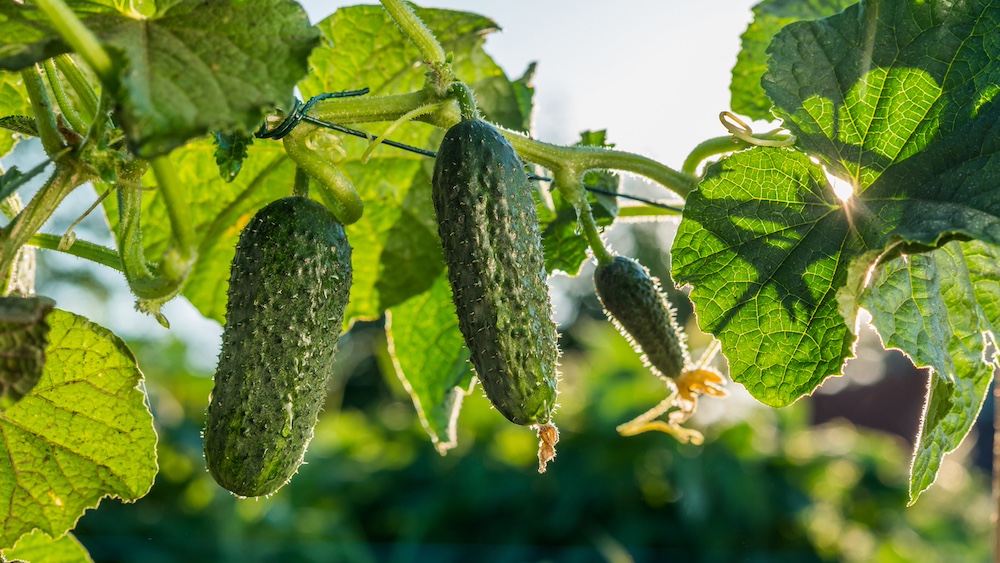After months of abnormally dry and warm conditions, 52 north Georgia counties are now facing water use restrictions in accordance with Gov. Nathan Deal’s Level 2 drought response designation. Fifty-eight other counties are being required to implement Level 1 drought responses.
Homeowners and businesses in the affected counties must limit their landscape irrigation to two days a week. Even-numbered addresses and properties without numbered addresses may water on Wednesdays and Saturdays between 4 p.m. and 10 a.m. Odd-numbered addresses may water Thursdays and Sundays, also between 4 p.m. and 10 a.m.
The Level 2 drought response also calls for homeowners and business owners to refrain from washing hard surfaces, such as streets and sidewalks; washing cars at home or for fundraisers; noncommercial pressure washing; using fountains or water features; and using fire hydrants for any reason except for firefighting and public safety.
Irrigation of newly installed turf or landscape plants or vegetable gardens; irrigation at commercial nurseries, parks, sports fields and golf courses; hand-watering; and irrigation with drip or soaker hoses are exempt from these regulations, as these are considered agricultural water uses.
Counties that are part of the Level 2 drought response area include: Banks, Barrow, Bartow, Butts, Carroll, Catoosa, Chattooga, Cherokee, Athens-Clarke, Clayton, Cobb, Coweta, Dade, Dawson, DeKalb, Douglas, Fannin, Fayette, Floyd, Forsyth, Fulton, Gilmer, Gordon, Gwinnett, Habersham, Hall, Haralson, Harris, Heard, Henry, Jackson, Lamar, Lumpkin, Meriwether, Monroe, Morgan, Murray, Newton, Oconee, Paulding, Pickens, Pike, Polk, Rockdale, Spalding, Troup, Union, Upson, Walker, Walton, White and Whitfield.
Fifty-eight counties have been designated as Level 1 drought areas, which requires water authorities to launch water conservation campaigns and restricts outdoor water use to between 4 p.m. and 10 a.m.
The counties included in the Level 1 drought response are: Baker, Baldwin, Bibb, Bleckley, Calhoun, Chattahoochee, Clay, Columbia, Crawford, Crisp, Decatur, Dooly, Dougherty, Early, Elbert, Franklin, Glascock, Greene, Hancock, Hart, Houston, Jasper, Jefferson, Jones, Laurens, Lee, Lincoln, Macon, Madison, Marion, McDuffie, Miller, Mitchell, Muscogee, Oglethorpe, Peach, Pulaski, Putnam, Quitman, Rabun, Randolph, Richmond, Schley, Seminole, Stephens, Stewart, Sumter, Talbot, Taliaferro, Taylor, Terrell, Towns, Twiggs, Warren, Washington, Webster, Wilkes and Wilkinson.
University of Georgia Cooperative Extension has a long list of resources for homeowners and farmers coping with the drought, and for members of the media covering the drought.
Experts for covering the drought:
Local UGA Extension Agents
Every county in Georgia has access to a local expert on local drought conditions and water conservation measures. Visit extension.uga.edu to find your local agent.
Climate Science
Pam Knox, agricultural climatologist for UGA Extension
pknox@uga.edu (Email is best)
706-310-3467
Knox is a good source for historical context for this drought as well as explanations of the climatological patterns that have kept Georgia warmer and drier than normal.
blog.extension.uga.edu/climate/
Home Landscapes
Sheri Dorn, coordinator for the Georgia Master Gardener Extension Volunteer program
sdorn@uga.edu
770-228-7243
Dorn has a wide-ranging horticultural background and has led the Georgia Master Gardener program as the group has focused on water conservation education.
She can offer a multitude of tips for helping your landscape survive dry times.
She coordinates a team of hundreds of volunteers working in gardens and communities across Georgia and is a great source for perspective for what the drought looks like in different parts of the state.
Agriculture
Gary Hawkins, agricultural water resources specialist for UGA Extension
706-310-3526
ghawkins@uga.edu
Hawkins is a source for information on agricultural water use and the drought’s impact on agriculture.
Green Industry
Ben Campbell, UGA applied economist who focuses on the impact of the green industry
706-542-0852
bencamp@uga.edu
Campbell is an economist with the UGA College of Agricultural and Environmental Sciences who studies the impact of the green industry.
Clint Waltz, UGA Extension turfgrass specialist
770-228-7300
cwaltz@uga.edu
Waltz is a source for information on the science behind your lawn during a drought.
Matt Chappell, UGA Extension nursery plant production specialist
706-542-9044
hortprod@uga.edu
Chappell can help explain how the drought is impacting the nursery industry and landscape shrubs.

